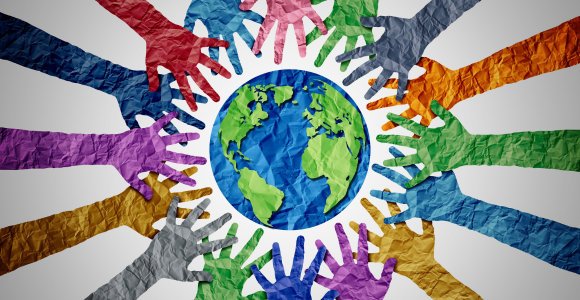
Differences are often the first things we notice. They can shape our assumptions and interactions, and even trigger our fears. Whether the color of someone’s skin, the language they speak, the person they love, or the faith they follow, markers of difference can trigger feelings of unfamiliarity or anxiety. History is filled with examples of how divisions based on difference have led to injustice, violence, and the dehumanization of those deemed “other.” But we can choose a different response to our differences. To live in a just and compassionate world that is a safe home for us all, we must learn to embrace our differences, viewing each person, no matter how different, as our neighbor: someone worthy of empathy, care, and dignity.
Welcome Readers! Please subscribe to Social Jesus Here.
This is Part 3 of Loving Our Neighbor as an Affirmation of Diversity
(Read this series from its beginning here.)
The parable of the Good Samaritan told in Luke’s gospel is a powerful illustration of this principle. When asked, “Who is my neighbor?” Jesus responds with a tale where the hero is not a familiar priest or Levite, but a member of a group the Judeans despised. The Samaritan’s compassion for the injured man defines what it means to be a neighbor. It’s not just about shared identity, tribe, or affiliation; it’s also about shared humanity and an act of compassion by a compassionate person who happens to belong to a despised community.
In an age of social media echo chambers and our polarized society, it is easy to limit ourselves to those who think or believe as we do. But real community begins when we allow ourselves to see the humanity in someone who is different. When we do this, we challenge not only our own biases but also the broader social structures that perpetuate exclusion and inequality.
Seeing the other as our neighbor does not mean ignoring differences or pretending they don’t matter. It means recognizing that differences can enrich our collective experience and that empathy is the foundation of just society. Our reading this week calls us to humility—to listen, to learn, and to serve, even when it is inconvenient or uncomfortable.
Ultimately, seeing others as neighbors is a choice. It is a spiritual and ethical discipline that transforms how we relate to those with whom we share our world. It invites us into a larger story, one in which love transgresses human-made boundaries, dignity is upheld, and justice and peace become possible. If we are to build a future that honors every human being, we must begin by looking at the person beside us, no matter how different, and saying, “You are my neighbor.”
Are you receiving all of RHM’s free resources each week?
Begin each day being inspired toward love, compassion, justice and action. Free.
Sign up at HERE.














